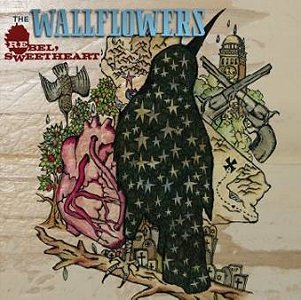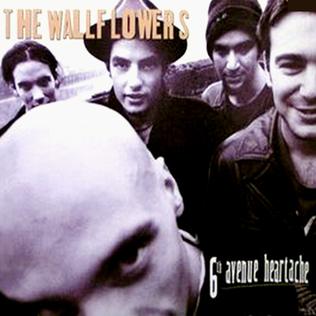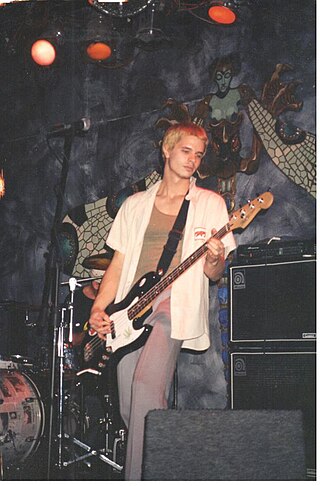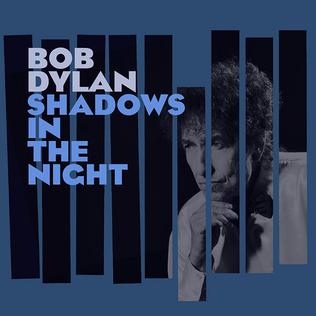
Jakob Luke Dylan is an American singer-songwriter. He rose to fame as the lead singer and primary songwriter for the rock band the Wallflowers.

The Wallflowers is an American rock solo project of American singer-songwriter and multi-instrumentalist Jakob Dylan. The Wallflowers were originally a roots rock band formed in Los Angeles in 1989 by Dylan and guitarist Tobi Miller. The band has gone through a number of personnel changes but has remained centered on Dylan.

Rami Jaffee is an American musician. He is best known as the keyboardist for the rock band Foo Fighters, whom he initially joined in a touring and session capacity in 2005. Jaffee has contributed to seven of the band's studio albums, and in 2017 formally joined the band as a full-time member.

Breach (stylized as (Breach)) is the third studio album by the Wallflowers. The album's first single was "Sleepwalker", the video of which poked fun at lead-singer Jakob Dylan's "rock star" status following the success of Bringing Down the Horse. Guests on the album included Elvis Costello, who performed vocals on "Murder 101". Despite good reviews, the album failed to follow the commercial success of Bringing Down the Horse and was seen as somewhat of a commercial failure. "Breach" peaked at number 13 on the Billboard 200 and was certified Gold.

Red Letter Days is the fourth album by The Wallflowers, released in 2002.

Rebel, Sweetheart is The Wallflowers' fifth album, released in 2005. The two singles released from this album were "The Beautiful Side of Somewhere" and "God Says Nothing Back." The single "The Beautiful Side of Somewhere" hit #5 on AAA radio stations.

"Lay Lady Lay", sometimes rendered "Lay, Lady, Lay", is a song written by Bob Dylan and originally released in 1969 on his Nashville Skyline album. Like many of the tracks on the album, Dylan sings the song in a low croon, rather than in the high nasal singing style associated with his earlier recordings. The song has become a standard and has been covered by numerous bands and artists over the years.

"One Headlight" is a song by American rock band the Wallflowers. The song was written by lead singer Jakob Dylan, and produced by T-Bone Burnett. It was released in January 1997 as the second single from the band's second studio album, Bringing Down the Horse (1996).

"6th Avenue Heartache" is a song by the American rock band The Wallflowers. It was released in April 1996 as the lead single from their second album Bringing Down the Horse. The song became their first hit, peaking at No. 8 on the US Modern Rock Tracks chart, No. 10 on the US Mainstream Rock Tracks chart, and No. 33 on the US Hot 100 Airplay chart. The background vocals in this song are by Adam Duritz from Counting Crows. Though the song was a hit on rock radio, it was overshadowed by its follow-up single, "One Headlight".

Chase This Light is the sixth studio album by American rock band Jimmy Eat World. The band began working on the follow-up to Futures (2004) by late 2005, and had made demos by early 2006. They started recording their next album with engineer Chris Testa between Arizona and California. Butch Vig was enlisted as an executive producer, acting in a consultancy role, where he would provide feedback on the material. Sessions began in August 2006 and lasted until May 2007, with tours of the US and Europe in between. Described as a pop punk, pop rock and power pop record, the guitars drew comparison to the Outfield and U2, while individual song comparisons were made to the likes of the Killers, the All-American Rejects and Shout Out Louds.

"The Difference" is a song by American rock band the Wallflowers. It was released in 1997 as the third single from their second album, Bringing Down the Horse. The song spent eight weeks at number three on the Mainstream Rock Tracks chart and peaked at number five on the Modern Rock Tracks chart. It was nominated for a Grammy Award for Best Rock Song in 1998. "The Difference" also peaked at number 12 in Canada, topping the RPM Alternative 30 chart.

"Three Marlenas" is a song by American rock band the Wallflowers. It was released in October 1997 as the fourth and final single from their second album, Bringing Down the Horse (1996). The song peaked at number 51 on the US Billboard Hot 100 Airplay chart and number 13 on Canada's RPM Top Singles chart.
Michael Ward is an American guitarist from Minneapolis, Minnesota.

Glad All Over is the sixth studio album for Californian alternative rock band The Wallflowers. It was released in October 2012 by Columbia Records, and charted at #48.

This is a comprehensive discography of official recordings by the Wallflowers, an American alternative rock band originally from Los Angeles.

Collected 1996–2005 is a greatest hits / best of compilation by American rock band the Wallflowers. It was released on June 16, 2009 by Interscope Records. It includes all the singles from their four albums on the label, Bringing Down the Horse (1996), Breach (2000), Red Letter Days (2002), and Rebel, Sweetheart (2005). In addition to singles and selected album tracks, the compilation includes two previously unreleased recordings, "Eat You Sleeping" and a demo version of "God Says Nothing Back".

Robt Ptak is an American rock singer-songwriter, guitarist, bassist, and record producer who is the co-founding member and bassist/backing vocalist for 1990s pop punk band Size 14.

Lost on the River: The New Basement Tapes is an album produced by T Bone Burnett featuring a collective of musicians recording under the moniker The New Basement Tapes—Elvis Costello, Rhiannon Giddens, Taylor Goldsmith, Jim James and Marcus Mumford.

Shadows in the Night is the 36th studio album by Bob Dylan, released by Columbia Records on February 3, 2015. The album consists of covers of traditional pop standards made famous by Frank Sinatra, chosen by Dylan. Like most of his 21st century output, Dylan produced the album himself under the pseudonym Jack Frost.

Exit Wounds is the seventh studio album by the Wallflowers, their first in nine years since the release of Glad All Over (2012). The album debuted No. 183 on the US Billboard 200. On Billboard’s Top Album Sales chart it debuted at No. 3, making it the band’s highest-charting album yet. It was released by New West Records on July 9, 2021. Singer-songwriter Shelby Lynne's backing vocals are featured on four tracks. "Roots and Wings" was released as the first single on April 9, 2021.



















